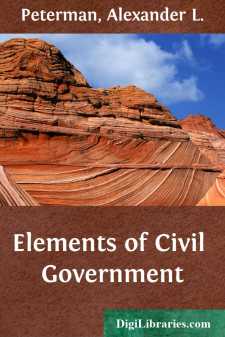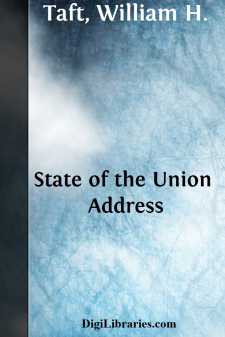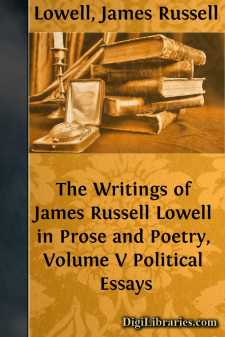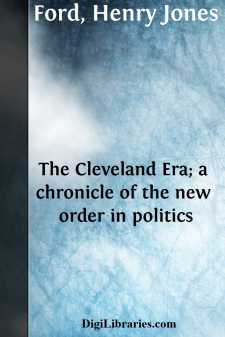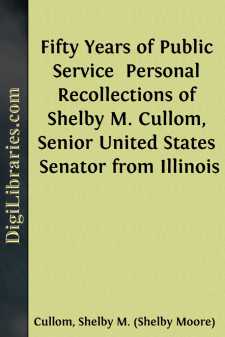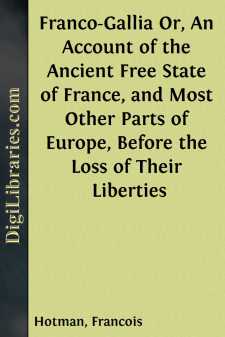Political Science
- Conspiracy & Scandal Investigations 1
- Constitutions 7
- Economic Conditions 10
- General 46
- Government 6
- History & Theory
- Peace 1
History & Theory Books
Sort by:
GIST The Crowd is my Hero. The Hero of this book is a hundred million people. I have come to have the feeling—especially in regard to political conventions, that it might not be amiss to put forward some suggestions just now as to how a hundred million people can strike—make themselves more substantial, more important in this country, so that we shall really have in this country in time a hundred...
more...
CHAPTER I. INTRODUCTORY.[1]--People living in the United States owe respect and obedience to not less than four different governments; that is, to four forms of organized authority. They have duties, as citizens of a township or civil district, as citizens of a county, as citizens of some one of the States, and as citizens of the United States. All persons are, or have been, members of a family; some...
more...
JEFFERSON AS A TACTICIAN The word "tactician" is usually applied to military movements, but it has a broader meaning than this; it embodies the idea of a peculiar skill or faculty—a nice perception or discernment which is characterized by adroit planning or management, artfully directed in politics or diplomacy in government. "Of all creatures the sense of tact is most exquisite in...
more...
by:
William H. Taft
The relations of the United States with all foreign governments have continued upon the normal basis of amity and good understanding, and are very generally satisfactory. EUROPE. Pursuant to the provisions of the general treaty of arbitration concluded between the United States and Great Britain, April 4, 1908, a special agreement was entered into between the two countries on January 27, 1909, for the...
more...
1858 There was no apologue more popular in the Middle Ages than that of the hermit, who, musing on the wickedness and tyranny of those whom the inscrutable wisdom of Providence had intrusted with the government of the world, fell asleep, and awoke to find himself the very monarch whose abject life and capricious violence had furnished the subject of his moralizing. Endowed with irresponsible power,...
more...
by:
Henry Jones Ford
CHAPTER I. A TRANSITION PERIOD Politicians at Washington very generally failed to realize that the advent of President Hayes marked the dismissal of the issues of war and reconstruction. They regarded as an episode what turned out to be the close of an era. They saw, indeed, that public interest in the old issues had waned, but they were confident that this lack of interest was transient. They admitted...
more...
Through the influence of early associations, I began my political life as a Whig, casting my first presidential ballot for General Harrison, in 1840. I knew next to nothing of our party politics; but in the matter of attending mass-meetings, singing Whig songs and drinking hard cider, I played a considerable part in the memorable campaign of that year. So far as ideas entered into my support of the...
more...
by:
Stanley Shaw
I. INTRODUCTORY. William the Second, German Emperor and King of Prussia, Burgrave of Nürnberg, Margrave of Brandenburg, Landgrave of Hessen and Thuringia, Prince of Orange, Knight of the Garter and Field-Marshal of Great Britain, etc., was born in Berlin on January 27, 1859, and ascended the throne on June 15, 1888. He is, therefore, fifty-four years old in the present year of his Jubilee, 1913, and...
more...
FOREWORD "Oh, that mine adversary had written a book!" Such was the exclamation of one who, through the centuries, has been held up to the world as the symbol of patience and long suffering endurance, and who believed that he thus expressed the surest method of confounding an enemy. I have come to that age in life where I feel somewhat indifferent as to consequences, and, yielding to the...
more...
by:
Francois Hotman
The State of Gaul, before it was reduced into a Province by the Romans. My Design being to give an Account of the Laws and Ordinances of our Francogallia, as far as it may tend to the Service of our Commonwealth, in its present Circumstances; I think it proper, in the first place, to set forth the State of Gaul, before it was reduced into the Form of a Province by the Romans: For what Cæsar, Polybius,...
more...



